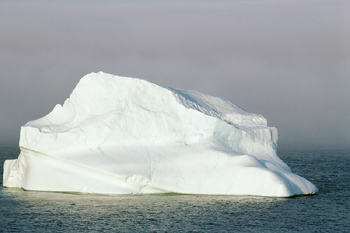Dec 4 2007
We can disguise environmentally harmful practices and dress them up in words to help ease our consciences, argues Albert Bandura of the Department of Psychology at Stanford University, but such practices will have a negative impact on the planet and the quality of life of future generations, no matter how we label them.

Writing in the Inderscience publication International Journal of Innovation and Sustainable Development, he explains that we must stop attempting to disguise our actions and switch on our environmental conscience to save the world.
As consumers we are repeatedly bombarded with messages telling us to consider the environment and to save energy in the face of global climate change. However, much has been made recently of the fact that personal economic savings on energy consumption might be offset by increased consumption of goods and services. What may at first appear to reduce the level of ecological harm that we cause, may in effect be cancelled out and possibly lead to even greater harm.
Moreover, many of us pursue practices that are detrimental to the environment but which we justify by a kind of moral disengagement. This frees us from the constraints of self-censure and we defend our actions on the basis that such practices are somehow fulfilling worthy social, national, or economic causes and, as such, offset their harmful effects on the future of our planet.
Moral disengagement equates to switching off one's conscience and there is nothing like self righteousness to exonerate and sanitize malpractice in the name of worthy causes. Convoluted language helps disguise what is being done and reduces accountability, and also ignores and disputes harmful effects. Learning about moral disengagement shines the light not only on the malpractices of others but on ourselves, argues Bandura, after all morally disengaged or not the conscience will still prick.
Bandura, in his paper, hopes to bring some clarity to the environmental dilemmas we face. He highlights how we can be selective about acknowledging the global consequences of our behaviour and points out that harmful practices, thinly disguised as worthy causes, could cause widespread human harm and degrade the environment nevertheless.
"We are witnessing hazardous global changes of mounting ecological consequence," he says, "they include deforestation, expanding desertification, global warming, ice sheet and glacial melting, flooding of low-lying coastal regions, severe weather events, topsoil erosion and sinking water tables in the major food-producing regions, depletion of fish stocks, loss of biodiversity, and degradation of other aspects of the earth's life-support systems. As the unrivaled ruling species atop the food chain, humans are wiping out species and the ecosystems that support life at an accelerating pace."
Bandura also points to soaring population growth as a major source of environmental degradation and believes that mounting numbers will wipe out the benefit of clean, green technologies.
He adds that, "If we are to be responsible stewards of our environment for future generations, we must make it difficult to disengage moral sanctions from ecologically destructive practices."